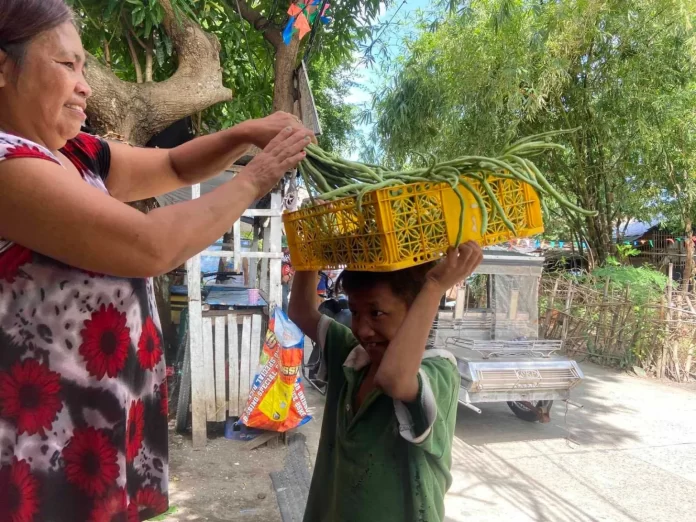Can a road project be the residents’ highway to homelessness and joblessness? For a 53-year-old resident who has lived in the community for decades, the answer appears to be yes.
Barbara Bibat of Sitio Ronggot, Calamba City, Laguna is among those facing displacement and loss of livelihood with the implementation of the Laguna Lakeshore Road Network (LLRN).
“When we heard the news about the project, we were really alarmed. What will happen to our livelihood that we have relied on for decades? This is our livelihood. If they want to move us then they should move the lake,” Bibat, secretary of the Calamba Fisherfolks Producers Cooperative Incorporated (CFPCI), said.
The LLRN Program is a 37.4-kilometer expressway from Lower Bicutan in the National Capital Region (NCR) to Calamba in Laguna Province. Led by the Department of Public Works and Highways (DPWH), it aims to provide a quicker and more secure option for drivers heading either north or south.
This, however, will affect about 400 families, including Bibat’s. They earn by fishing in the lake. Residents are worried that the road construction would disrupt the lake’s ecosystem. They said that siltation and altered water flows could happen, affecting fish breeding grounds and the availability of fish stocks.
“The proposed road network aims to improve connectivity and ease traffic congestion, but at what cost to the people and the environment?” Bibat asked.
No support for fisherfolk
The Bibat family has been residing in Sitio Ronggot for the past 65 years.
“Our grandparents passed down the art of fishing and the love for this lake. We fear that our traditions and way of life will be lost forever.” Bibat said, adding that “the early efforts and practices of this community played a significant role in enhancing the productivity of this part of the lake.”
Aside from fishing, residents also have rice fields and vegetable crops that help put food on the table.
This, Bibat and the rest of the residents fear, may also be affected by the construction of the road project. The first phase costs about $3.14 billion through a loan from the Asian Development Bank. It is currently being reviewed by the National Economic and Development Authority.
“If the government can fund billions of pesos for infrastructure projects, why not give aid to fisherfolk so they can buy new boats and fishing nets?” Bibat asked during a fisherfolk consultation organized by Save Laguna Lake Movement (SLLM), a Laguna-based environmental advocacy alliance.
With decades of living in the community, the fisherfolk in Ronggot still practice an old method of fishing. “If they [the government] really is for progress, why not fund projects that will help us learn new methods of fishing?” Bibat stressed.
Threats of displacement
Bibat said that residents are skeptical of promises that the road network will bring economic progress and development to their community, having seen the impacts of similar projects to ordinary people.
LLRN’s first phase includes an interchange road connected to Bucal Bypass Road in Calamba, resulting in at least five households in Sitio Ronggot likely to be displaced, locals reported.
Concerns over potential land displacement and changes in land use also persist, as urbanization and commercialization may reshape the landscape that has defined the community.
“I hope our story will make people realize that through this kind of project, there are communities like ours that will lose their homes and livelihood for the convenience of a few,” Bibat said.
This article was first published by Bulatlat.com









